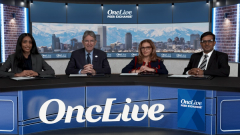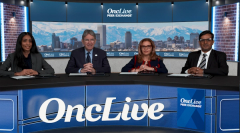
The Future of Allo-HSCT and Cellular Therapies
Speculation on anticipated innovations in allo-HSCT and cellular therapy technologies in the future.
Episodes in this series

This is a video synopsis/summary of a Peer Exchange featuring Miguel-Angel Perales, MD; Nelli Bejanyan, MD; Amandeep Salhotra, MD; and Arpita Gandhi, MD, MS.
The panel discusses various graft engineering strategies, including the Orca T-cell therapy (Orca-T) and Orca-Q products, which are the most advanced in development. Other approaches include the Trem-Cel (VOR33) platform, which uses CRISPR to delete CD33 expression, making it resistant to CD33-depleting strategies. Early data suggests that patients receiving VOR33-modified grafts can engraft and safely receive gemtuzumab post-transplant.
Another strategy involves stimulating CD34 cells in vitro with notch 1 signaling and pro–T cell cytokines to generate pro-lymphocytes. When infused, these cells develop into mature, host-tolerant T cells, improving immune recovery without causing graft-vs-host disease.
The panel also addresses the role of umbilical cord blood transplantation, noting that while its use has declined in adults, it remains more common in pediatric centers. Expanded cord blood products like Gamida Cell’s omidubicel may not reverse this trend due to factors like the availability of haploidentical donors, time limitations for graft expansion, and cost.
The panel emphasizes the importance of mismatched unrelated donors (7/8 or 6/8 HLA matched) in expanding access to transplantation, particularly for racial and ethnic minorities.
Finally, the panel highlights the unmet need for transplantation in older patients, who often have higher-risk diseases and comorbidities.
Video synopsis is AI-generated and reviewed by OncLive® editorial staff.






































